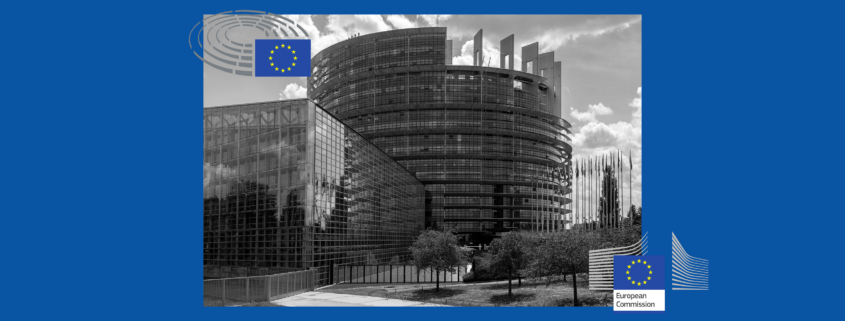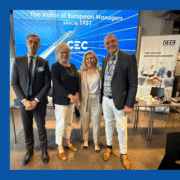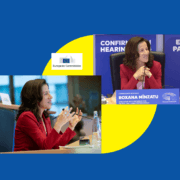CEC European Managers calls for greater recognition of managers and Social Dialogue in upcoming Commissioners’ hearings
As the European Parliament prepares to hold hearings for the newly appointed Commissioners-designate, CEC European Managers is concerned about the lack of emphasis on the crucial role of managers and leaders in driving Europe‘s social and economic progress.
No specific mention is made of managers or leaders among the questions that will be addressed to EU Commissioners Designate.
Despite the relevance of managerial leadership in facilitating a just and fair transition for all towards a more sustainable and equitable future, European leaders are often overlooked in policy discussions and frameworks.
No specific mention is made of managers or leaders among the questions that will be addressed to EU Commissioners Designate.
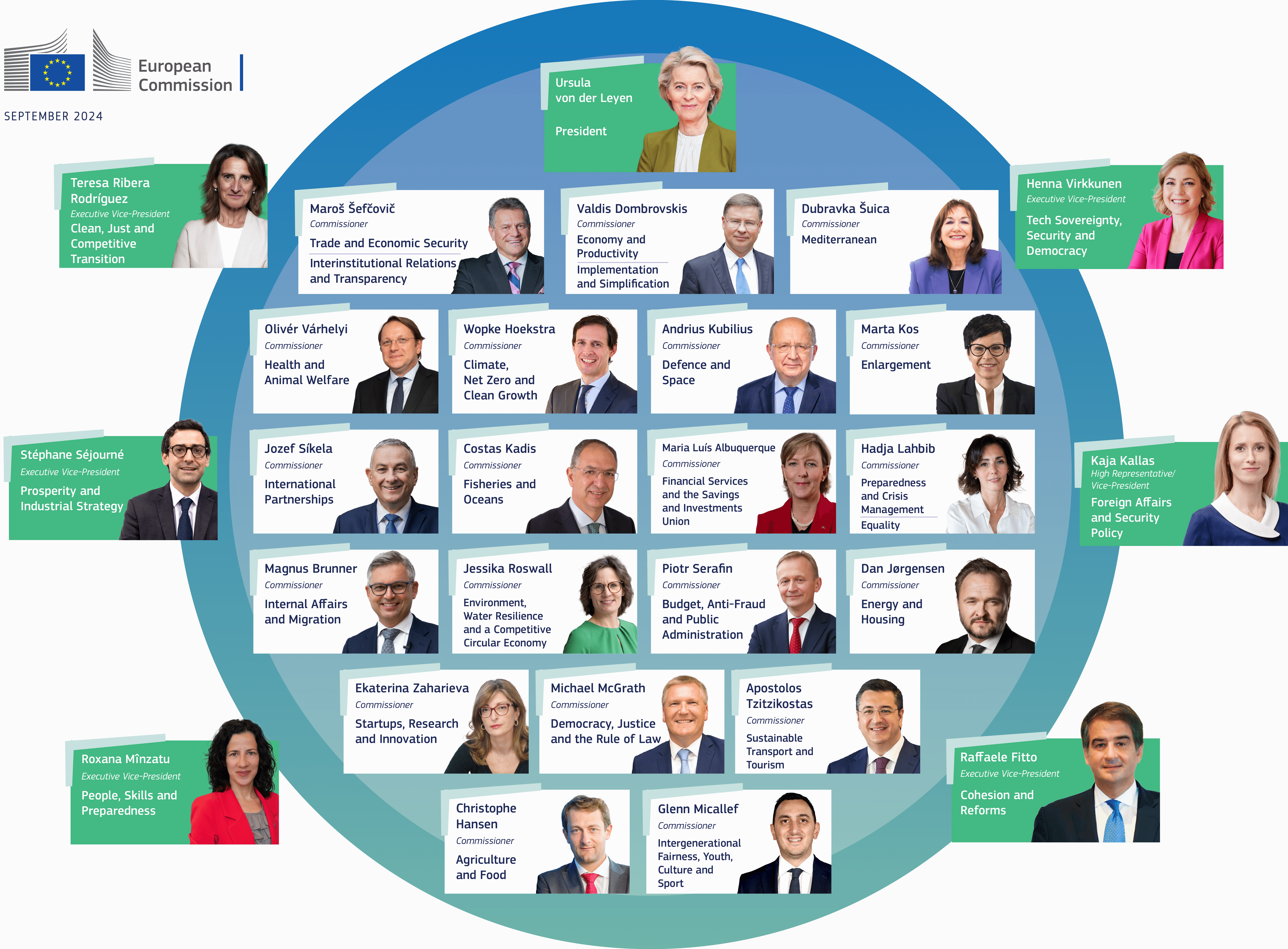
The current draft of topics to be addressed at the upcoming hearings includes only a single mention of the European Social Dialogue, the fundamental process for balanced decision-making between employers, workers, and EU institutions in which CEC European Managers plays a crucial role.
Moreover, the EU Pillar of Social Rights—which promotes fair employment, social protection, and equal opportunities across member states—has been referenced merely four times.
The absence of managerial perspectives and limited focus on Social Dialogue signal a missed opportunity to underscore these elements’ critical role in achieving the EU’s ambitious goals for just transitions and economic inclusivity.
As a recognized social partner of the European Commission, CEC European Managers emphasizes its commitment to continue advocating for managers as essential “bridge-builders” who facilitate cooperation between various stakeholders.
Empowering the leaders CEC represents will prove indispensable to a holistic and sustainable approach to the just transition process—one that relies on collaboration across sectors and integrates voices from all levels of industry and employment.
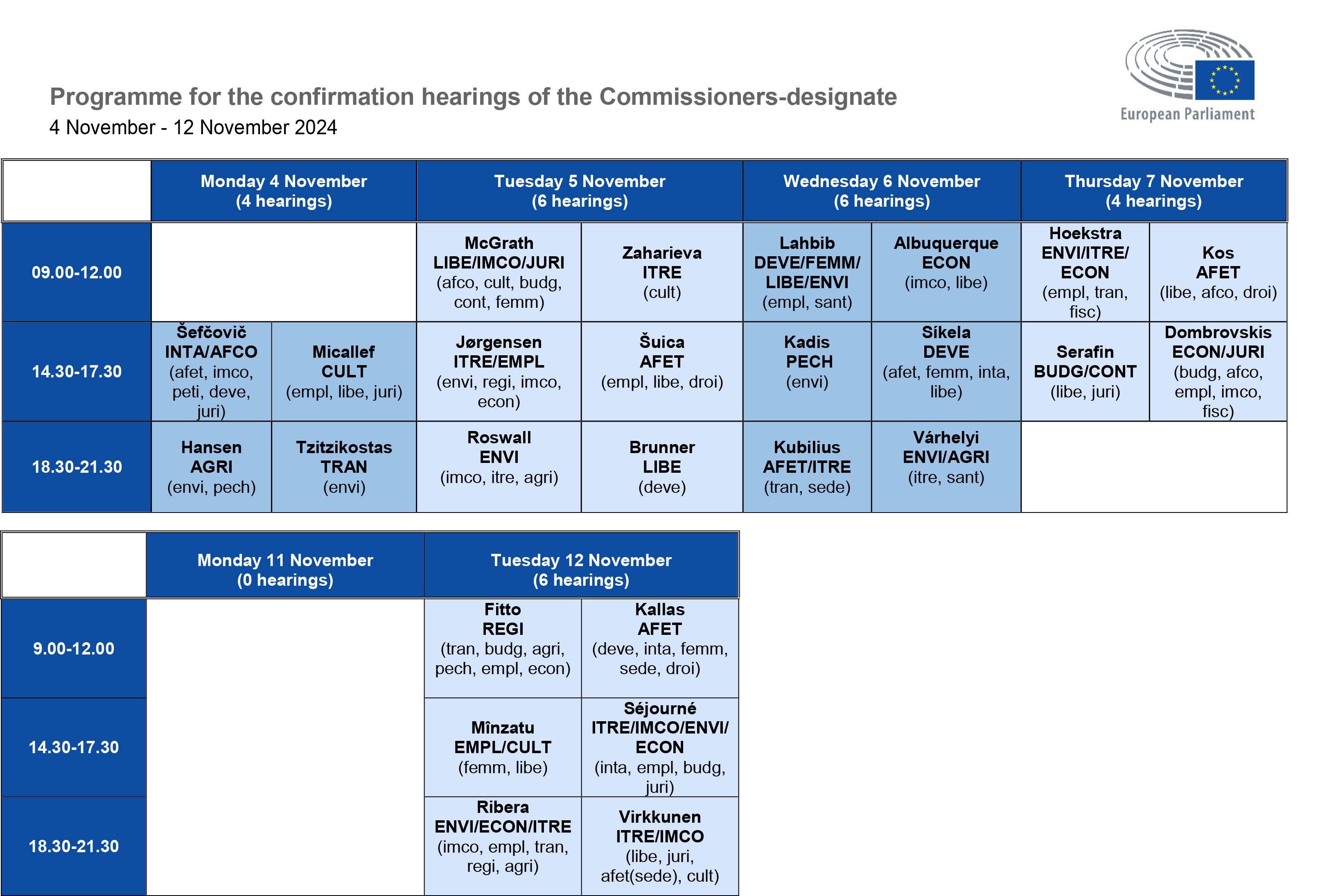
November hearings: How it works
The European Parliament has already confirmed the schedule for hearings of Commissioners-designate, which will take place from November 4 to November 12, 2024.
After consultations with committee chairs, Parliament President Roberta Metsola and political group leaders established the final timetable.
During these hearings, each Commissioner-designate will address a series of pre-approved written questions, which they must respond to by October 22, 2024.
Following each hearing, committee chairs and group representatives will assess the Commissioner-designate’s performance and provide recommendations for the subsequent stages of the evaluation process.
Once the evaluation is complete, the Conference of Committee Chairs will review the outcomes and submit recommendations to the Conference of Presidents, which will then decide whether to finalize the hearings.
The entire Commission’s approval, requiring a simple majority vote, is expected during the plenary session in Strasbourg from November 25 to November 28.
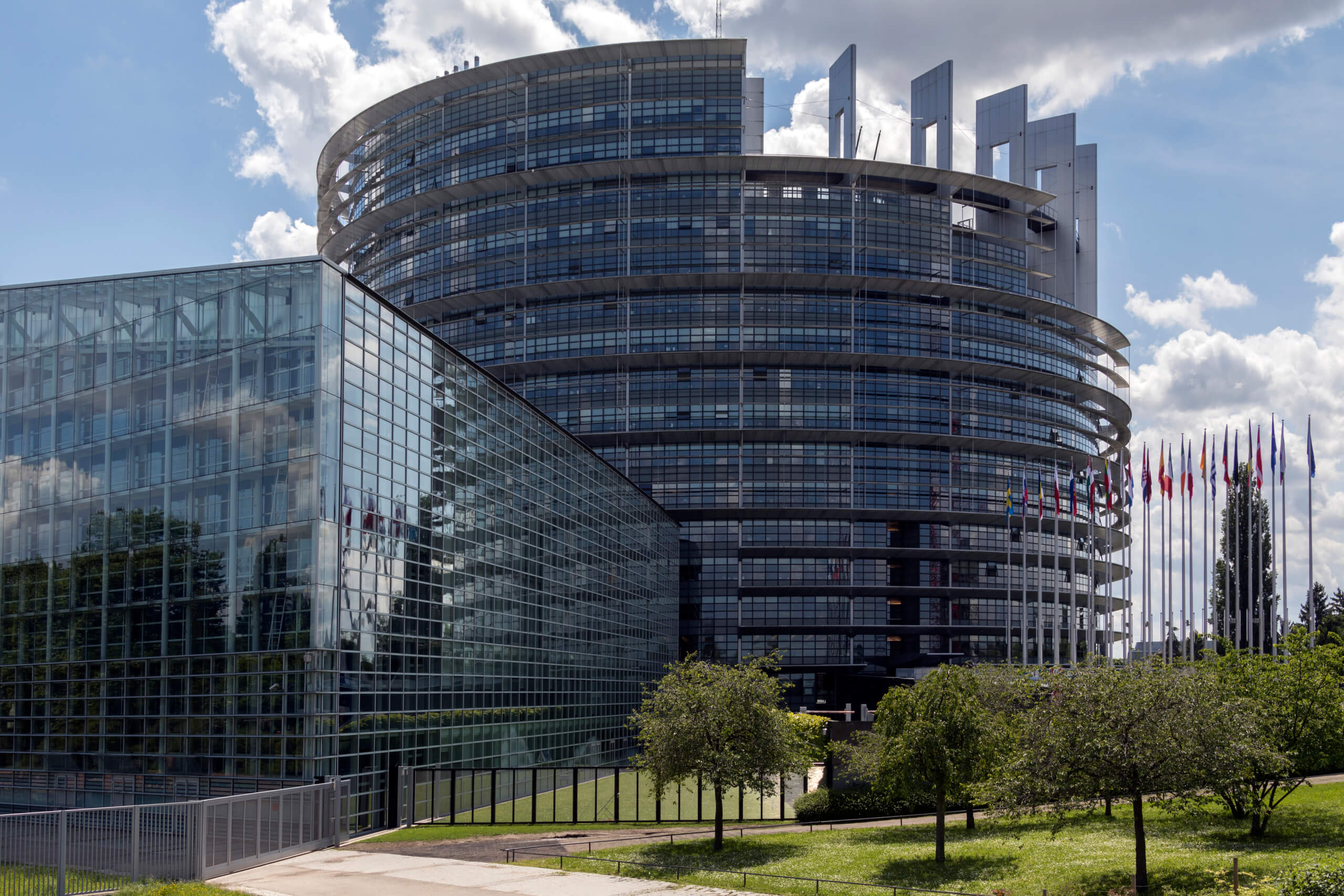
The Role of Social Dialogue
Social Dialogue has historically been pivotal in shaping EU Commission’s labour policies and ensuring fair labour practices across member states. However, with only one mention of social dialogue in the current hearing documentation, there is apprehension that the emphasis on collaborative frameworks may be insufficient.
The EU Pillar of Social Rights, which consists of principles that address work-life balance, equal opportunities, and fair working conditions, is a foundational concept of the European social model and its approach to economic transitions.

Key questions for Commissioners on Social and Economic issues
The European Parliament’s Committee on Employment and Social Affairs (EMPL), among other parliamentary bodies, has prepared a series of questions for Commissioners-designate on topics related to social and employment policy.
Notably, Executive Vice President for Clean, Just, and Competitive Transitions Teresa Ribera will be asked to detail her strategy for managing labour market shifts necessitated by the EU’s green transition.
Additionally, Roxana Mînzatu, the proposed Commissioner for Social Rights, will face questions on implementing the EU Pillar of Social Rights and addressing labour fragmentation.
The committee will seek her stance on consolidating social policies under a unified title, potentially known as “Executive Vice President for Quality Jobs, Social Rights, Skills, and Education,” to streamline oversight and improve policy cohesion.
Other questions from EMPL aim to address labour market challenges, including skills shortages, low-skilled worker inclusion, and the rising risk of poverty among EU citizens.
A major point of focus will be on potential legislative efforts to secure adequate minimum income standards across the EU, ensuring that national social protection systems are respected while also promoting inclusivity for those absent from the labor market.

Struggling for managers and leaders’ recognition
CEC European Managers reiterates that as social partners, we will persist in advocating for recognizing managers and leaders as central players in the EU’s economic strategy.
Managers’ unique role as facilitators in the workplace and beyond positions them to contribute meaningfully to the EU’s goals of achieving a fair, green, and digital transition.
CEC European Managers aim to empower leaders to build bridges across industries and sectors, furthering the EU’s commitment to social dialogue and the well-being of all its citizens.
As the hearings progress, stakeholders and observers will be keen to see if the concerns raised by CEC European Managers—and the broader call for robust social dialogue—are integrated into the EU’s framework for its next EU institutions mandate of policy and economic development.
You can consult the full document with all the questions here [+]
Here’s a breakdown of the key questions prepared for each Commissioner-designate, along with the European Parliament committees that posed them:
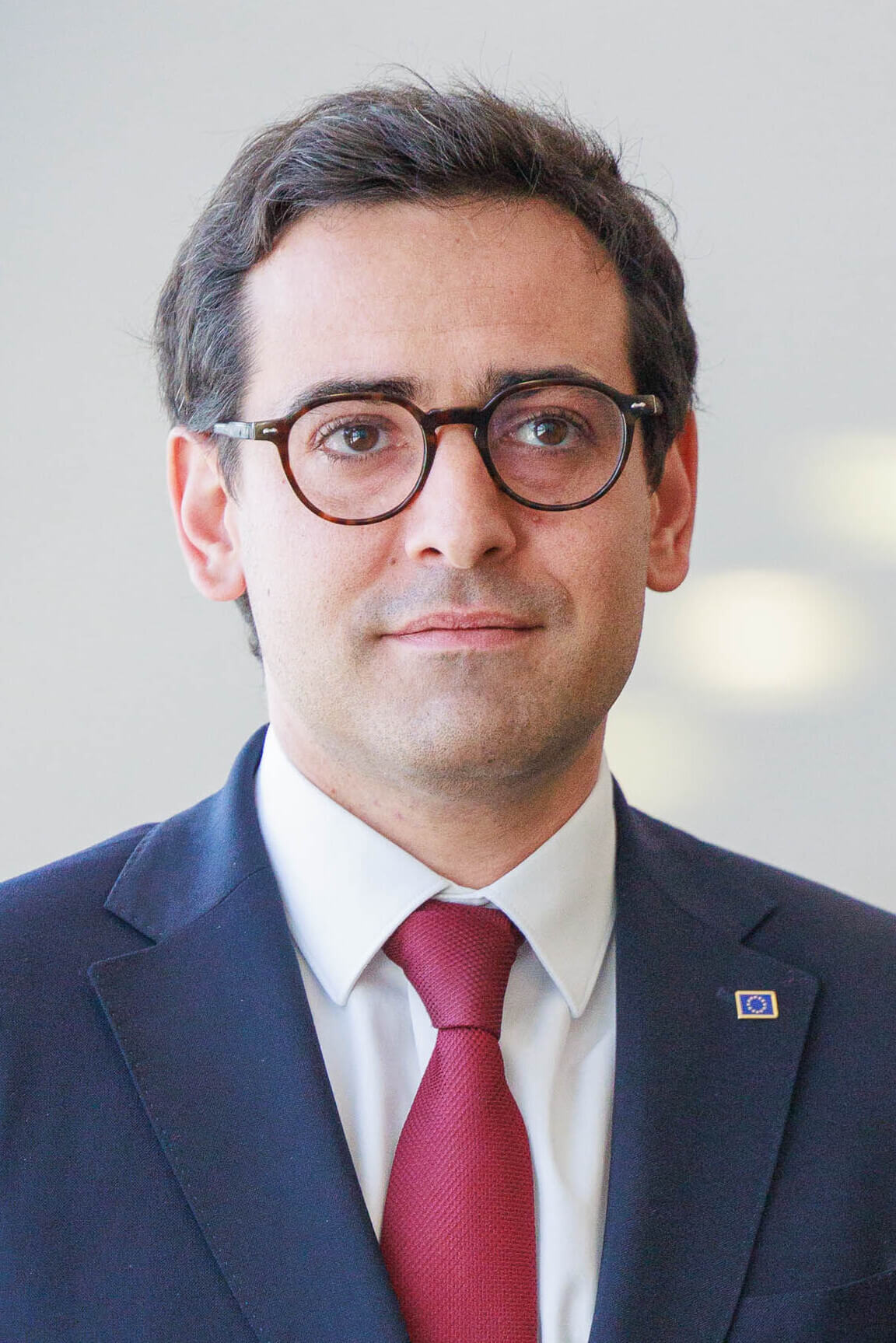 1. Stéphane Séjourné
1. Stéphane Séjourné
Role: Executive Vice President for Prosperity and Industrial Strategy
Question Posed By: Committee for Employment and Social Affairs (EMPL),
- “How will you involve social partners?”
- The EMPL committee is interested in understanding how Séjourné will integrate social partners—such as trade unions, employers, and other stakeholders—into his policy framework, especially regarding economic growth and industrial strategy.
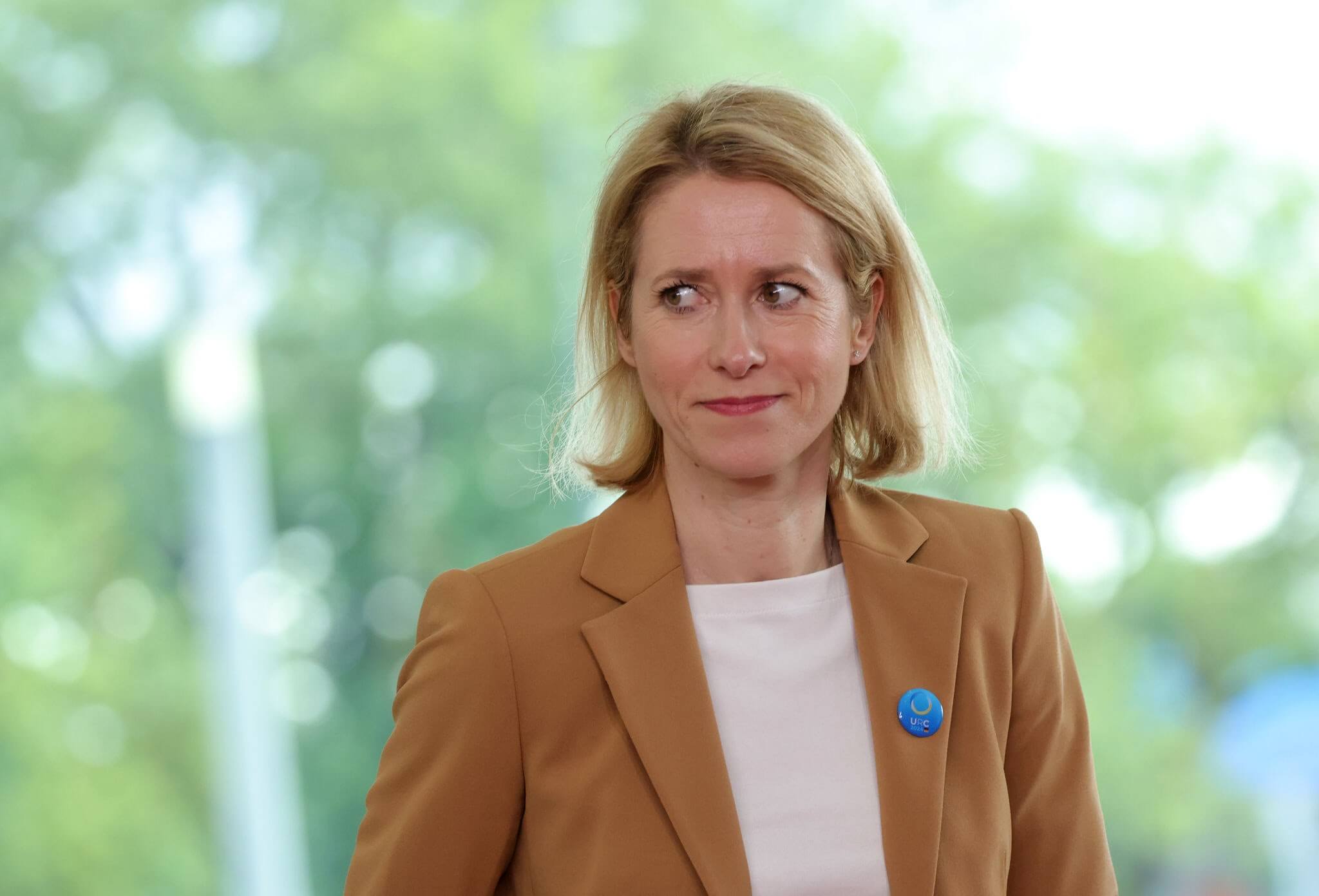
2. Kaja Kallas
Role: High Representative for Foreign Affairs and Security Policy and Vice President of the EU Commission
Question Posed By: Committee for Gender Equality (FEMM)
- “How will you promote women’s leadership in peace and security-related contexts?”
- The FEMM committee is seeking Kallas’s strategies for enhancing women’s leadership roles, particularly in areas concerning peace, conflict resolution, and security.
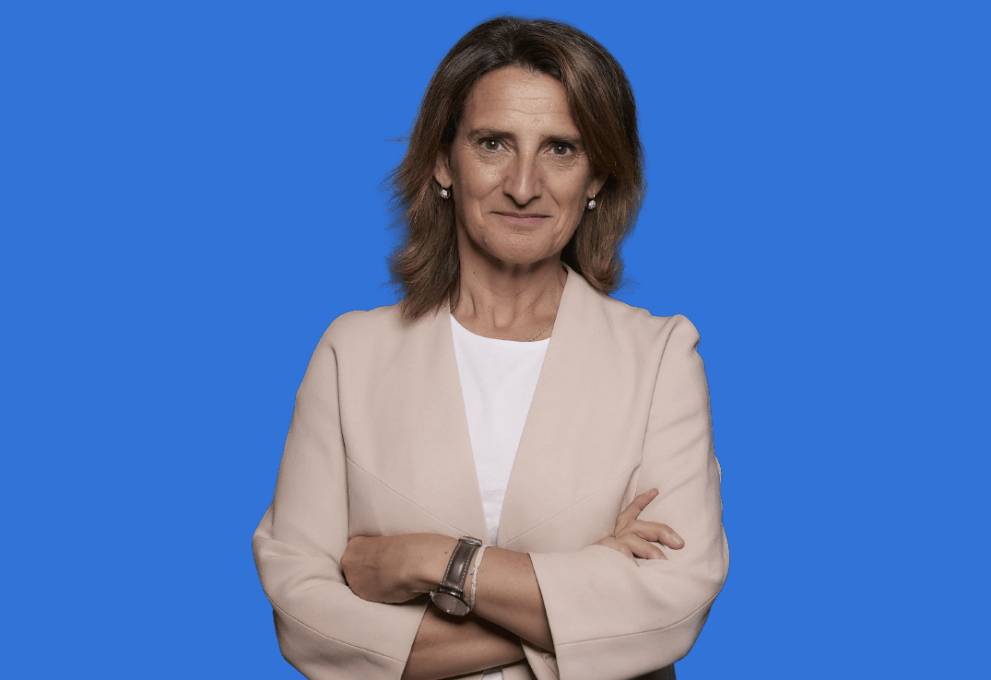 3. Teresa Ribera
3. Teresa Ribera
Role: Executive Vice President for Clean, Just, and Competitive Transitions
Question Posed By: Committee for Employment and Social Affairs (EMPL)
- “How will you address management of changes in the world of work for a just transition?”
- EMPL’s question focuses on Ribera’s plans for addressing the challenges that come with transitions in the labor market, specifically those driven by environmental policies and shifts toward green and digital economies.
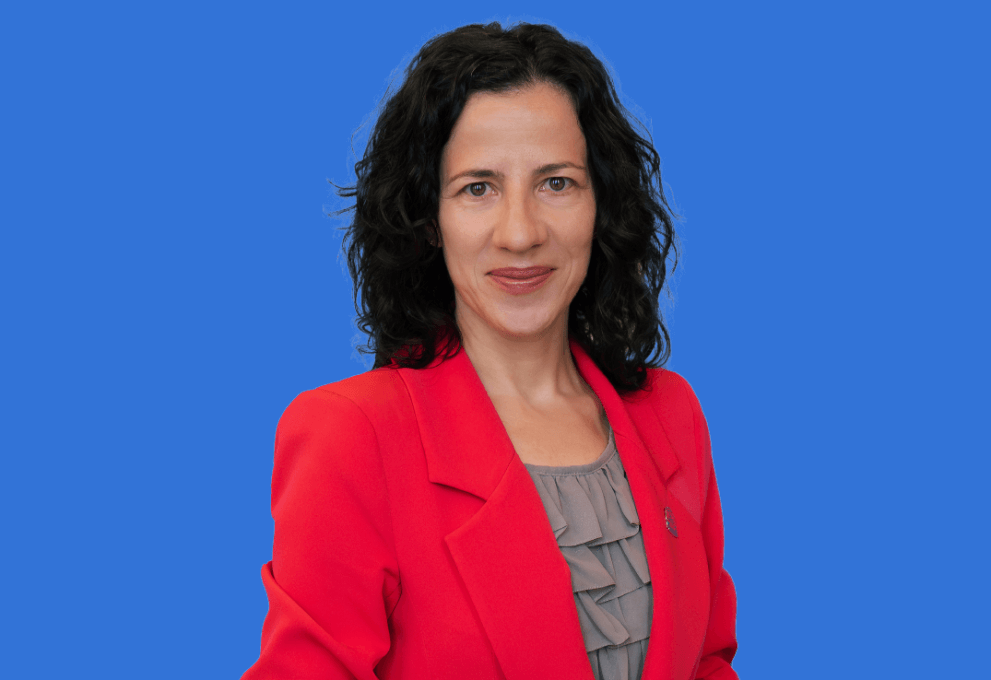
4. Roxana Mînzatu
Role: Commissioner for Social Rights
Questions Posed By: Committee for Employment and Social Affairs (EMPL)
- “How will you ensure that the fragmentation of social and employment policy and its inclusion in numerous portfolios of Commissioners-designate will not undermine the implementation of the EU Pillar of Social Rights?”
- EMPL is concerned about how Mitzatu will ensure coherence and unity across social and employment policies under various Commissioners to uphold the EU Pillar of Social Rights.
- “Would you agree to change your title to ‘Executive Vice President for Quality Jobs, Social Rights, Skills and Education’ and consolidate social and employment policies to ensure efficient structures and oversight?”
- This question addresses a potential restructuring for better oversight, suggesting a consolidated title and responsibilities for Mitzatu.
- “Will you deploy the consensus achieved in the La Hulpe Declaration regarding digitalization at work, housing, and collective bargaining?”
- EMPL seeks assurance on whether Mitzatu will incorporate the La Hulpe Declaration, which outlines consensus on digitalization, housing, and workers’ rights.
- “What are your concrete measures to tackle critical skills and labor shortages in the EU labor markets?”
- EMPL wants details on Mitzatu’s plans to address pressing skills gaps and labor shortages, which affect EU competitiveness and economic stability.
- “How can low-skilled workers benefit from the Union of Skills?”
- This question aims to explore how Mitzatu will support low-skilled workers in accessing new opportunities within the EU’s evolving skills framework.
- “95 million Europeans are at risk of social exclusion, including 19 million children. What do you plan to do?”
- Mitzatu will be expected to present strategies for reducing social exclusion, particularly among vulnerable populations like children.
- “11% of workers are exposed to poverty. What are your concrete initiatives regarding the first-ever EU Anti-Poverty Strategy?”
- EMPL is interested in hearing about specific initiatives Mitzatu will implement under a proposed EU Anti-Poverty Strategy to assist working individuals who remain at risk of poverty.
- “Will you present a directive on adequate minimum income to ensure the reintegration of people absent from the labor market, while respecting the subsidiarity principle and the specificities of national social protection systems?”
- EMPL is keen to understand if Mitzatu plans to establish a directive on minimum income that would harmonize standards across the EU, respecting national differences while supporting reintegration into the workforce.
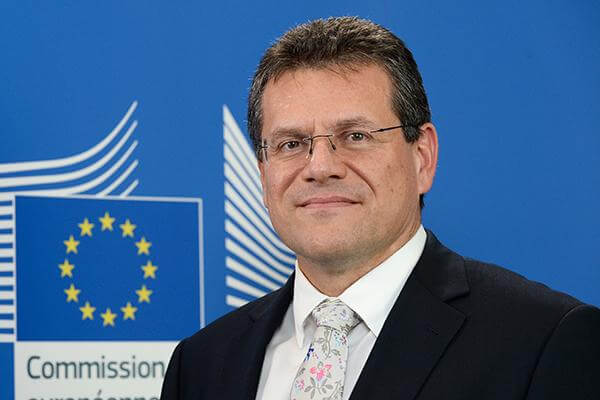
5. Maros Šefčovič
Role: Commissioner for Interinstitutional Relations and Transparency
Question Posed By: Committee on International Trade (INTA)
- “How do you intend to engage with and take into account the views of business representatives, trade unions, and NGOs, including via Domestic Advisory Groups that have been set up to advise on the implementation of EU trade agreements?”
- INTA is interested in Šefčovič’s plans to include diverse stakeholders in the trade policy process, particularly through the use of Domestic Advisory Groups, which play a consultative role in EU trade agreements.
The responses from each Commissioner-designate will shape their respective roles and influence the future direction of EU policies.

